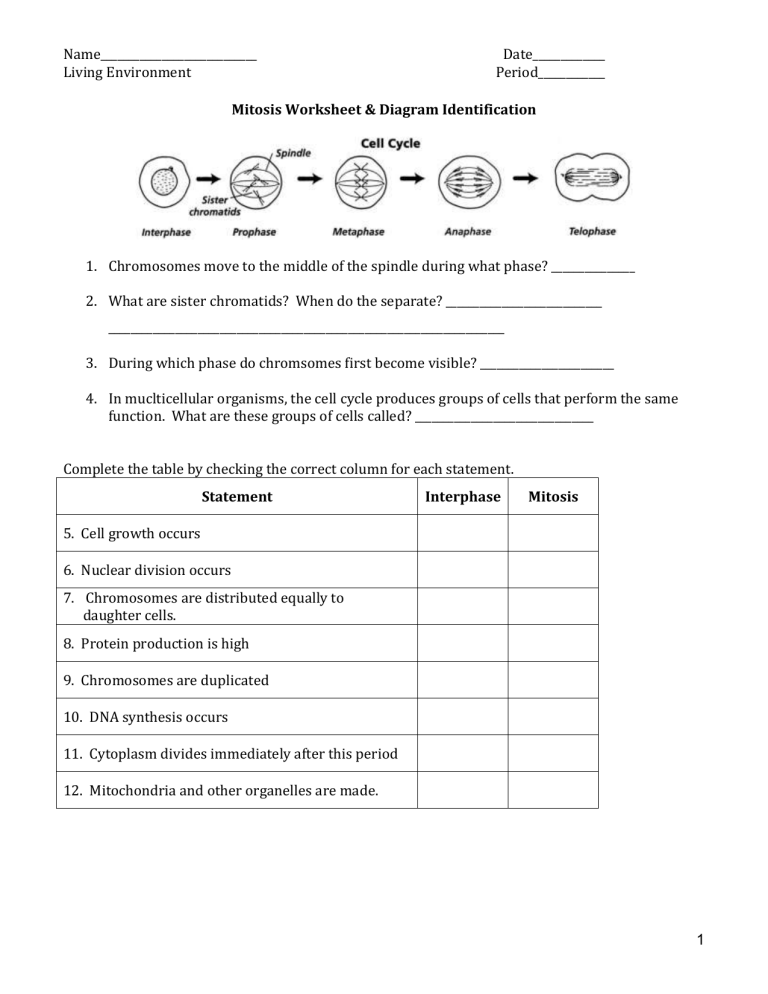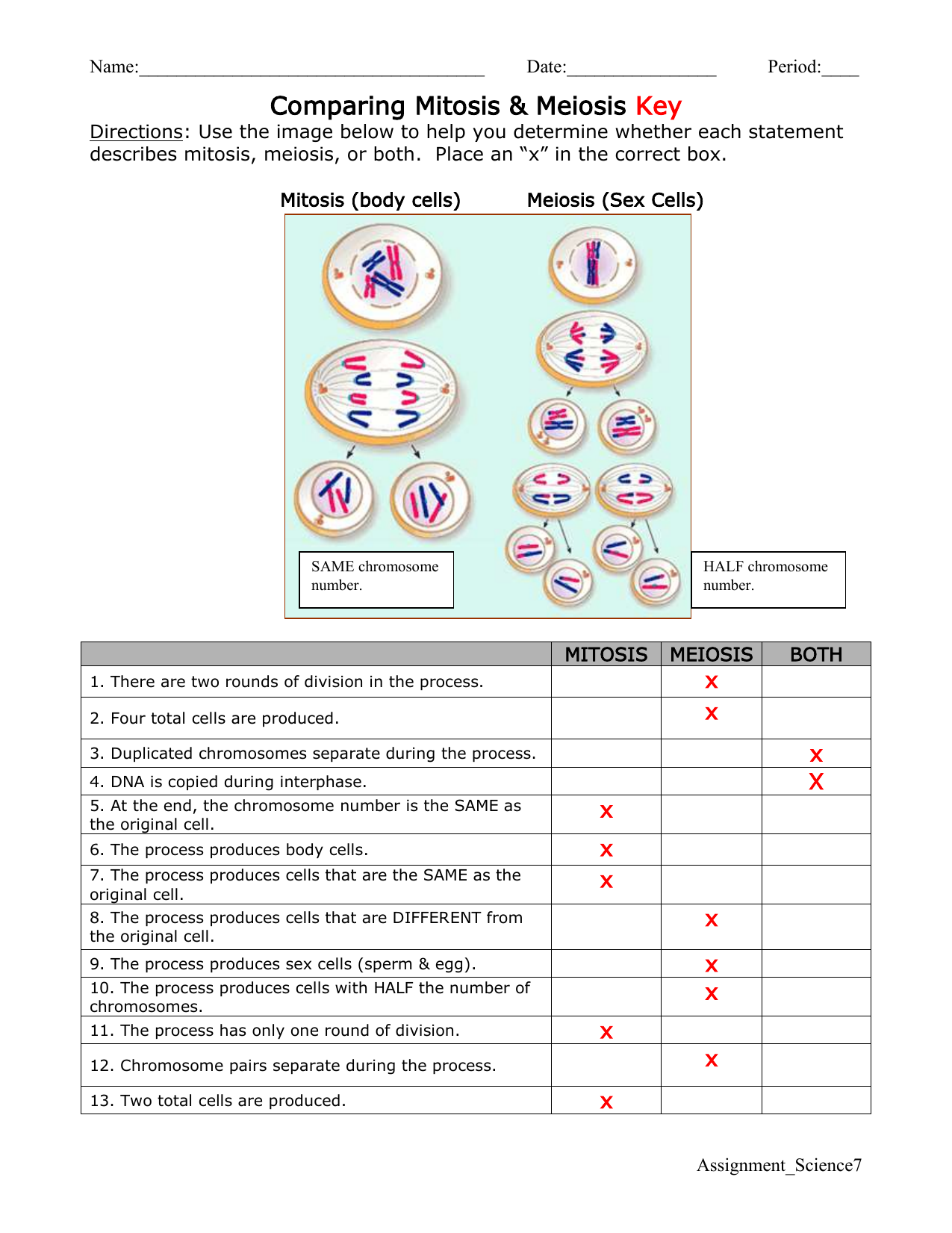Master Mitosis: Free Review Worksheet for Students

Mastering the process of mitosis is essential for students, particularly those engaged in biology classes. Understanding cell division, particularly how one cell divides into two identical daughter cells, forms the bedrock of concepts such as growth, repair, and asexual reproduction. This article will guide you through a comprehensive, free mitosis review worksheet that can aid in consolidating your knowledge and preparing for exams.
Introduction to Mitosis


Mitosis is the phase of the cell cycle where a single cell’s nucleus divides into two nuclei, each carrying the same number of chromosomes as the original nucleus. Here’s a brief overview:
- Interphase: The cell prepares for division by replicating its DNA.
- Prophase: Chromatin condenses into visible chromosomes.
- Metaphase: Chromosomes align at the cell’s equator.
- Anaphase: Sister chromatids are pulled apart to opposite poles.
- Telophase: Chromosomes de-condense, and the cell prepares for cytokinesis.
- Cytokinesis: The physical division of the cytoplasm, creating two daughter cells.
The Mitosis Review Worksheet

To solidify your understanding, here’s a review worksheet structured to guide you through the mitosis process:
Part 1: Identification of Phases

| Image | Phase | Description |
|---|---|---|
 |
Prophase | Observe how chromosomes condense and the nuclear envelope breaks down. |
 |
Metaphase | See chromosomes aligned along the equatorial plate. |
 |
Anaphase | Identify sister chromatids being pulled apart. |
 |
Telophase | Notice the formation of two new nuclei. |

Part 2: Short Answer Questions

- Why is DNA replication necessary before mitosis?
- Explain the significance of the mitotic spindle.
- How does the cell cycle control ensure that mitosis occurs correctly?
- What happens to the cell’s genetic material during each phase of mitosis?
🔬 Note: Remember, during the review, always refer back to the diagrams and notes from your class for additional clarity.
Part 3: Diagram Analysis

Here are three diagrams showing cells in different stages of mitosis:
- Label each diagram with the correct phase of mitosis.
- Identify key structures in each phase.
- Describe what is happening at each stage in a short sentence.
Summary of Key Mitotic Events

Understanding mitosis involves recognizing the key events at each stage:
- Chromosome replication: Occurs in interphase.
- Chromosome condensation: Initiates in prophase.
- Metaphase alignment: Chromosomes align for equal division.
- Anaphase segregation: Sister chromatids move to opposite poles.
- Telophase separation: Nuclear envelopes begin to reform.
- Cytokinesis: Final separation of the cells.
The final phase of your preparation would be to wrap up with a succinct recap of the mitosis process. Here's a summary:
- Remember that the cell cycle ensures controlled growth and division.
- Each phase of mitosis has a specific function in preserving genetic integrity.
- Regular review and practice with visual aids significantly enhance understanding.
As you continue your studies in biology, mastering mitosis will not only help you understand cellular reproduction but also provide insight into how life continues to grow and heal. Utilize the review worksheet regularly, engage in discussions with peers, and seek clarification on any topics that remain unclear. This will not only boost your performance on biology exams but also give you a deeper appreciation of life at the microscopic level.
What is the purpose of mitosis?

+
Mitosis is crucial for growth, repair, and asexual reproduction, allowing cells to divide to form identical daughter cells.
How can I memorize the phases of mitosis easily?

+
Use mnemonic devices like “I Pushed My Apple Today” (Interphase, Prophase, Metaphase, Anaphase, Telophase) to help remember the sequence of mitosis phases.
What happens if mitosis goes wrong?

+
Errors in mitosis can lead to conditions like cancer, where cells proliferate uncontrollably, or result in developmental abnormalities due to improper cell division.



